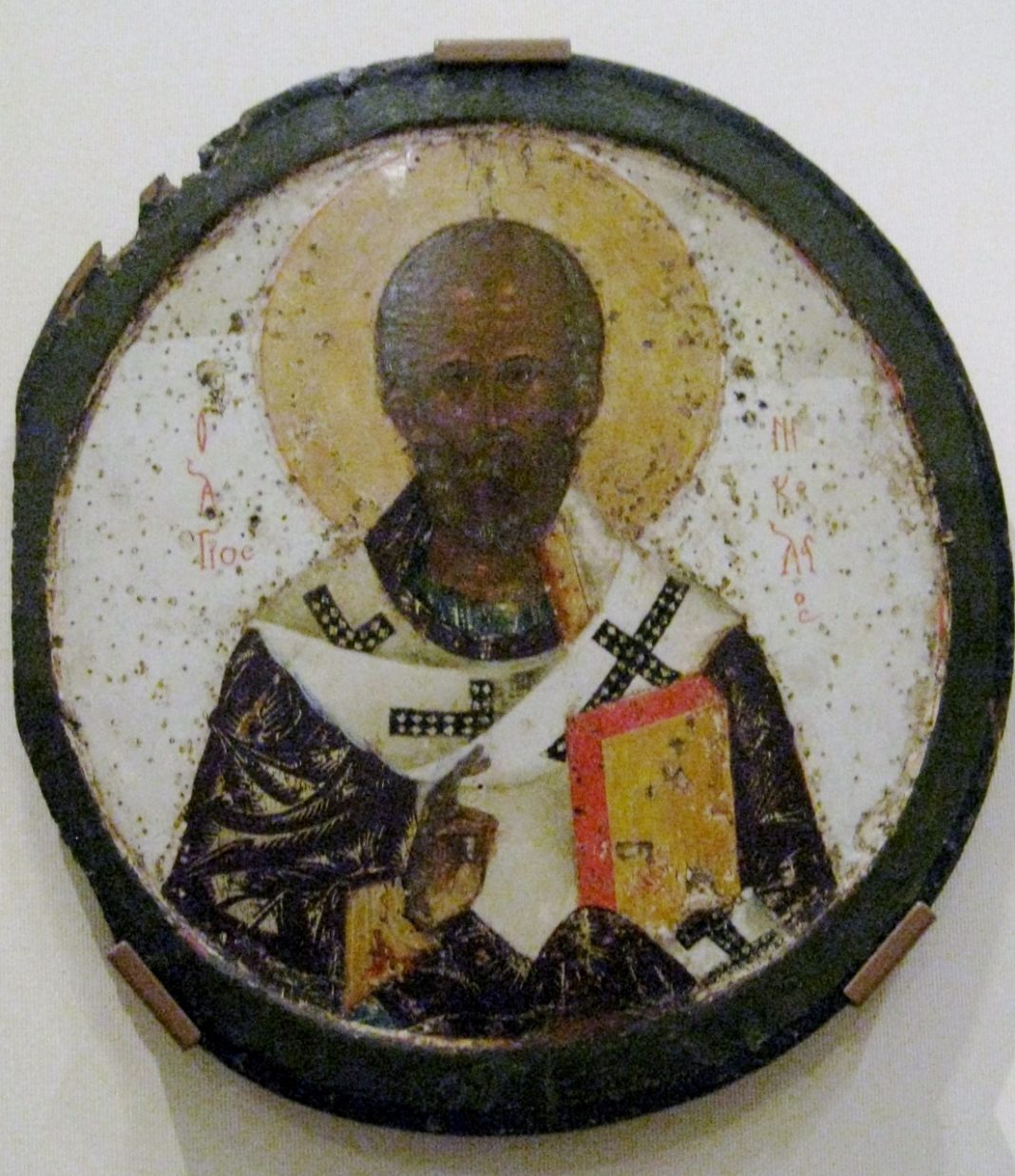By Catherine Tsounis, Contributor
History is written by the victors. – Winston Churchill
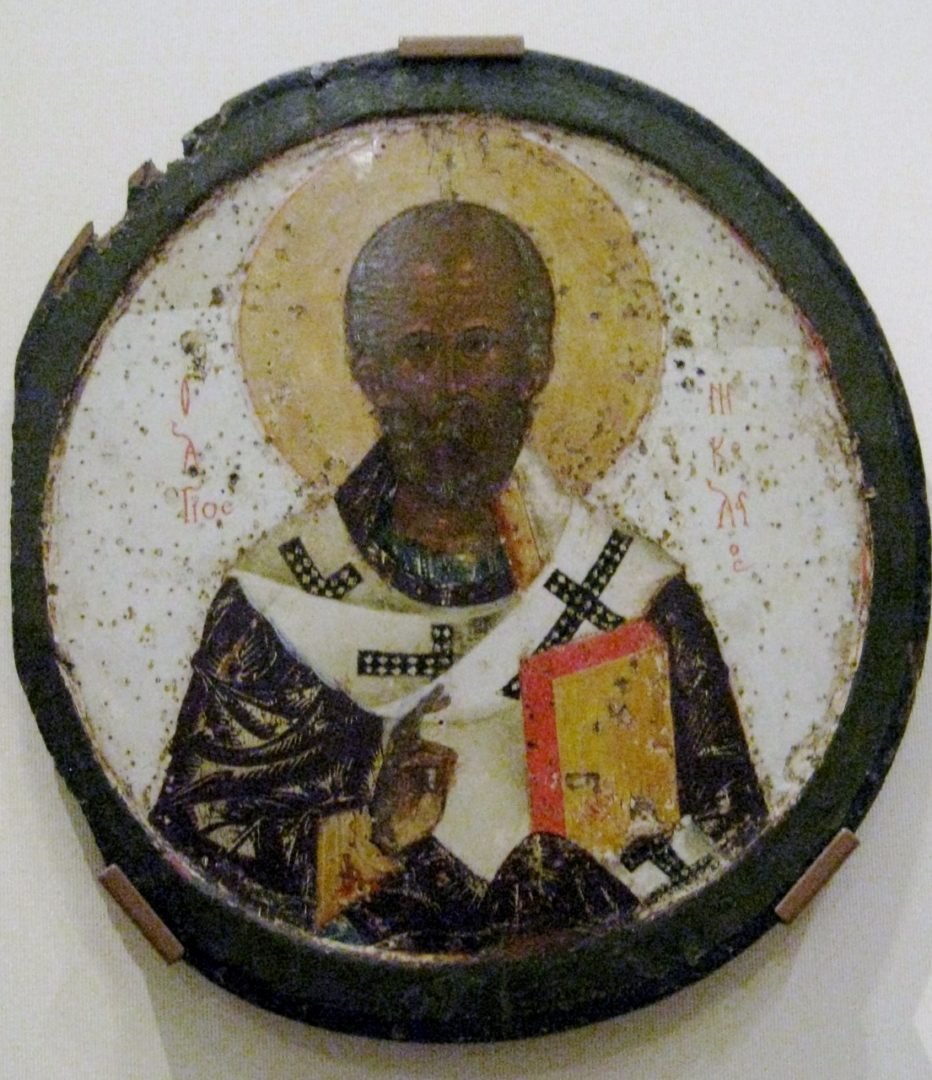
St. Nicholas Feast Day is approaching on December 6th, 2017. We had the honor of interviewing a Nicholas. Professor Father Nicola Madaro at St. San Giorgio dei (“Saint George of the Greeks”) Church in Castello, Venice, northern Italy gave us a glimpse of Byzantine civilization. The Church was the center of the Scuola dei Greci, the Confraternity of the Greeks in Venice. Prof. Father Nicola is a Greek Orthodox priest of the Greek Orthodox Archdiocese of Italy and Malta, a diocese of the Church of Constantinople that was established in 1991 as the Orthodox Archdiocese of Italy and Exarchate of Southern Europe.1
Dr. Despina Siolas, my unofficial travel agent/guide said, “Contact the Archdiocese in Venice that we want a tour of St. George Church.” To be frank, I expected to give a donation. I did not expect a warm response, because I am not a “Benefactor”, real estate magnate, high powered, wealthy American or part of the Greek Orthodox Church of America elite.
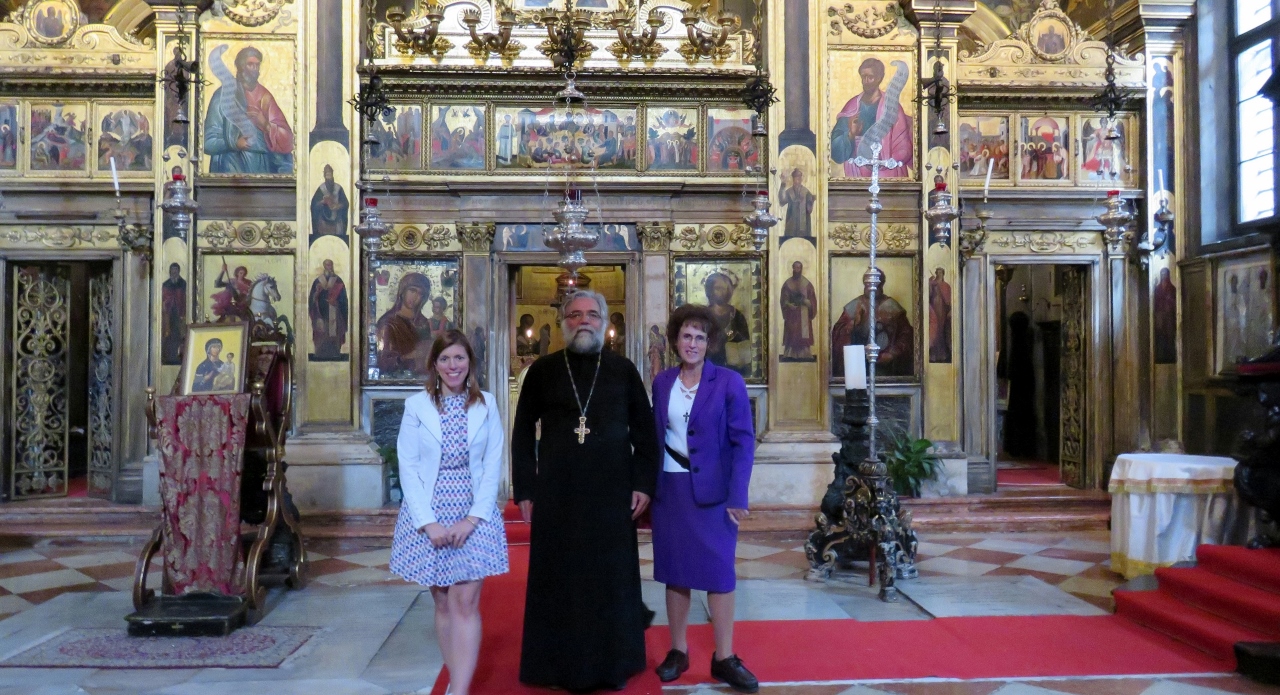
The Byzantine Empire is a sensitive topic to persons of Greek Orthodox roots. The Greek point of view is that Constantinople (Istanbul) was the main European defense in the East.
She kept forces out of Europe for over 1100 years. It was their own Western Christian brothers, primarily from Venice, that destroyed this vital Hellenism outpost during the 1st-4th Crusades in the late 1100’s to 1200’s. With the Fall of the Eastern Roman Empire on Tuesday, May 29, 1453, the Eastern Orthodox Christians had a new ruler: The Ottoman Sultan. The Byzantine princes became the clergy of the Eastern Orthodox Church. The only light for enslaved persons was Medieval Russia, who kept Byzantine civilization alive in Eastern Orthodoxy.
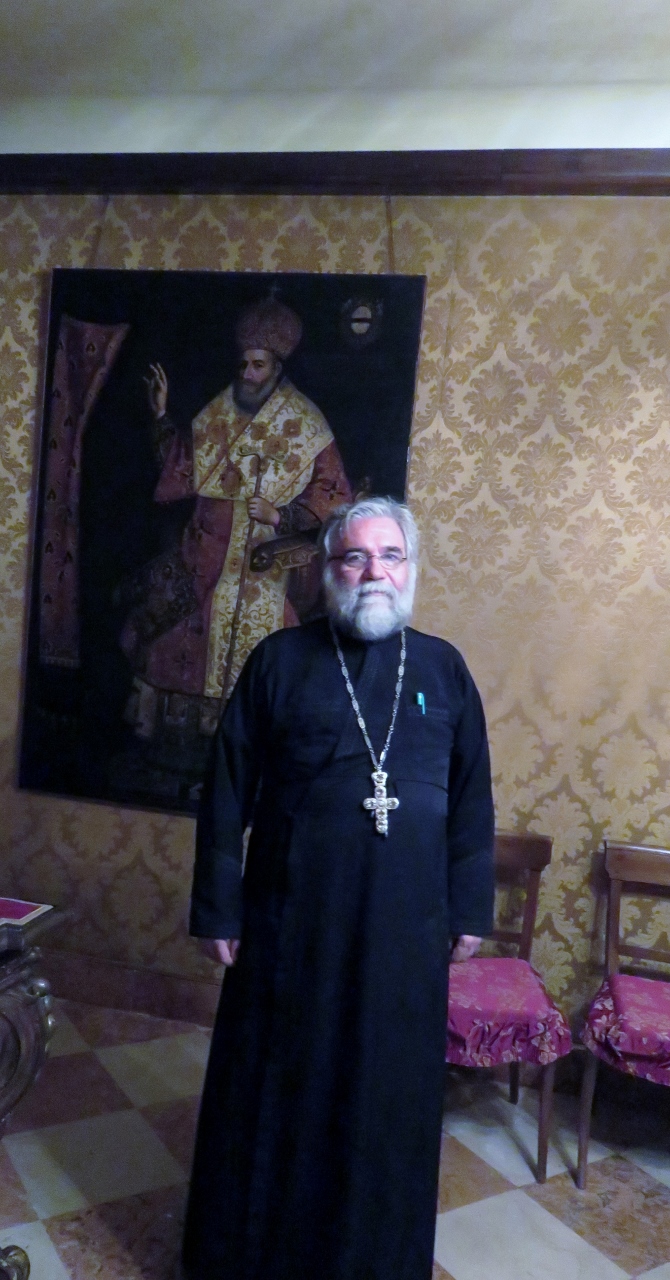
Eastern Romans (Byzantines) escaped to Venice, in the 1300’s and 1400’s. The Greek Orthodox Church of Italy holds the traditional seat. On Saturday evening, Oct. 14th, 2017, we had the opportunity of learning about Byzantium from Prof. Father Nicolas Madaro. He is a respected professor in Venice, instructing Venetian youth in classics. He gave us a tour of the historic Church and Archdiocese with a warm smile. He did not expect a donation. “It is my pleasure to meet with you today.” Unbelievable! He blessed us with the hands of St. Basil the Great and St. George. Father Nicola’s blessing worked, having an exceptional tour Venice, Aquileia, Ravenna and Florence. We visited his office in the Archdiocese and saw photos of the late Patriarch Athenagoras and a portrait of Bishop Athanasios Valerianos. We went for refreshments at Bar Pasticceria di Chiusso Pierino, a Venetian café overlooking a cobble stone road.
“I am from Kato Italia (Southern Italy), he said. “I am from a middle-class business family. At 30 years old, I became a Greek Orthodox priest. Few become Orthodox in Italy. My name Madaro is Greek for the White Mountains of Crete. My ancestors are Cretans, who lived in Italy. I am a Byzantinologos (Byzantine historian) who teaches Classics, Ancient Greek and Latin history in High School.” We explained our roots were from Western Anatolia “Asia Minor” and the north east Aegean islands. Prof. Father believes “the Mikrasiates (persons from Greek Asia Minor) took their faith with them that remains alive with them in the Greek Orthodox Church of America.”
He explained “there are few Greek Orthodox priests in Italy. I was the first ordained Italian Greek Orthodox priest since 1500 in the city of Nafpactos. I wanted Orthodoxy, returning to the faith of my ancestors. I read the Greek Fathers. The Orthodox faith is the true early Christian faith. I spent time at Mount Athos. There are 11/2 million Orthodox that are increasing, primarily from the Balkan countries. I studied Philology and Economics at the Kapodistrian University in Athens.’
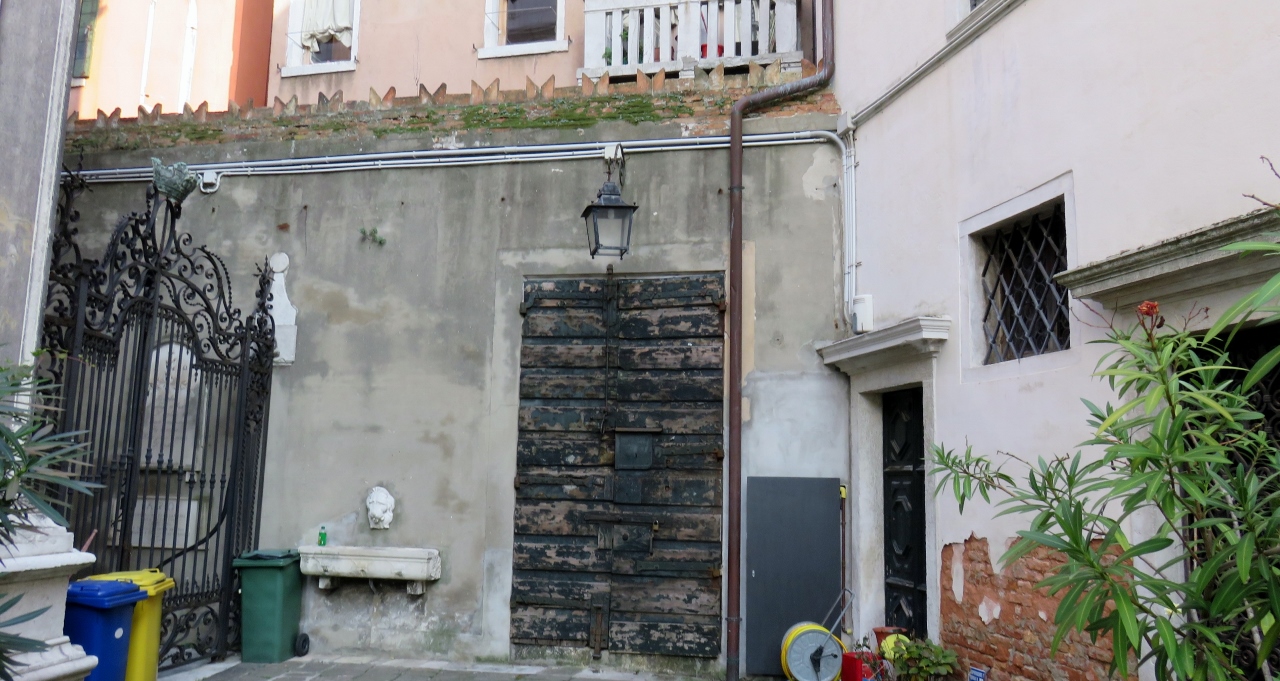
Prof. Father Nicola made it clear that “we respect all races and persons. Protestants are coming to Orthodoxy, the true church. Orthodox worshipers are increasing. We are like America, encompassing all Orthodox nationalities. It is very expensive to come to church in Venice. Using the vaporetto can cost 7 euros for a Sunday visit. I am dedicated to Orthodoxy. If one is a priest, his pension is from God. The church is our life, our ministry.”
The scholar enlightened us on Constantinople. “When the Ottoman Turks took Constantinople, there were 500,000 persons. In 1204 A.D. it was the largest city in Europe, Rome, Paris, Vienna were villages. Constantinople was “The City”. From the mid-5th century to the early 13th century, Constantinople was the largest and wealthiest city in Europe[6] and it was instrumental in the advancement of Christianity during Roman and Byzantine times.2
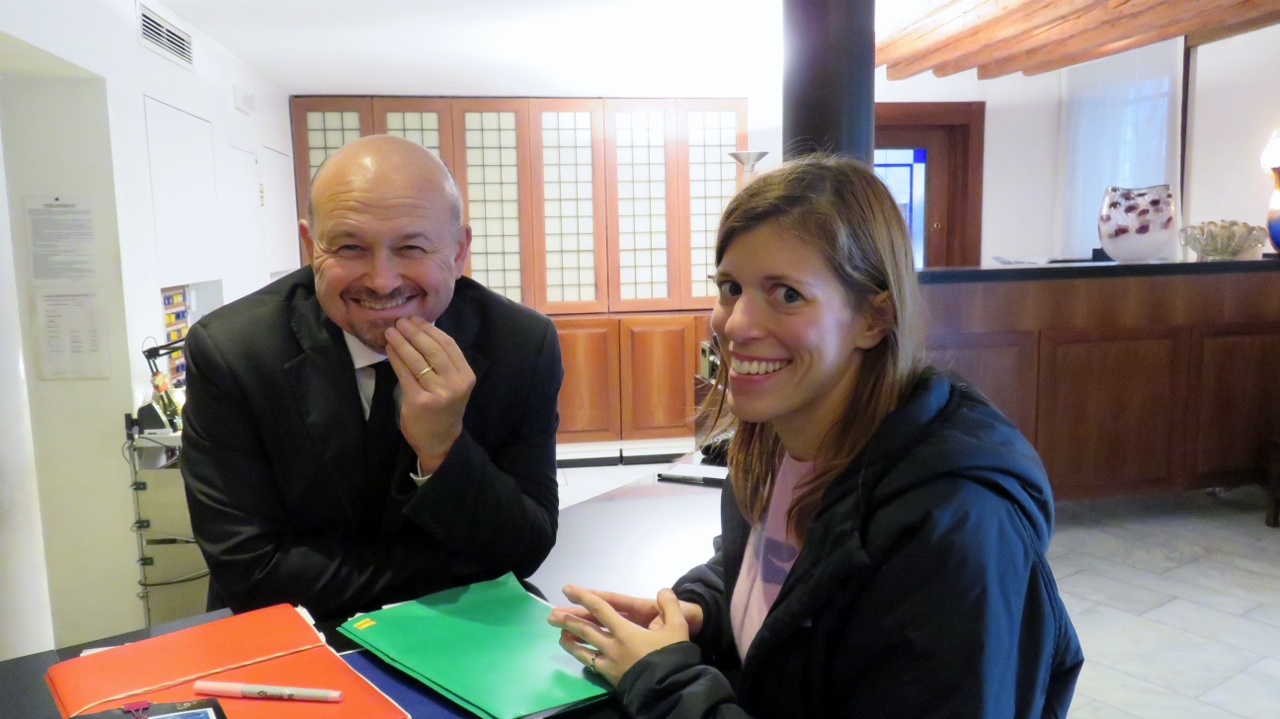
“The empire was not known as Byzantine,” he said. “It was the Roman Empire. There was only one Roman Emperor acknowledged in the West. He was not called the Byzantine Emperor. In 1439, John Palaeologus came to Florence. He was respected as the ‘Emperor of the Romans’. The Doge (Duke) of Venice was part of the Roman Empire. Venice’s support of the Angeli Emperor and his non-payment led to the Fall of Constantinople in 1204 to Venice and the 4th Crusade. When the Turks conquered Constantinople in 1453, there was nothing left. The 1204 Fourth Crusade took all the treasures. The Crusades weakened Constantinople. The city might have still been around if the Crusades did not weaken her. Byzantium, the term was created by the West. The persons considered themselves Romans.”
When I returned to America, I researched the name Byzantine. “The term ‘Byzantine Empire’ was evidently coined in the 16th century by a German historian editing a collection of East Roman historical documents. It became pervasive because it provided a neat way for early-modern writers who cared a lot about Scipio, Cicero, and Caesar — but not so much about Commenus, Chrysostom and Photius — to focus on the Roman antiquity they cared about and to jettison aspects of the Roman heritage they found distasteful. The ultimate example of this is Gibbon, whose attitudes pretty much created the negative stereotypes that go with the word “Byzantine” in English.”3
“Constantinople, the jewel of the East, was the symbol of this resilience and ability to win against all odds. The Fourth Crusade gave Byzantium the death blow to her inner strength from which she never recovered…Nicetas Choniates, who was an eyewitness to the 1204 Crusade stated ‘The time when the enemies went into Constantinople, the crusading army didn’t have respect for anything. The enemy entering into the city did everything bad that exists in this world…The Ottomans for all their barbarity and ruthlessness, were merciful, compared to the Western Christians.’”4
“Be proud you are Greek,” he said with conviction. “We must remember our Greek spirit in Western Civilization. We must transmit Greek civilization through the Orthodox Church. We must keep the faith and civilization in all persons of all backgrounds. The bible is in Greek and must be kept alive.” As Mark Batterson says “I’d rather be biblically correct than politically correct.”
“Anaxagoras was the first person to give a correct explanation of eclipses,” Prof Father Nicola explained. “Nicolaus Copernicus studied Aristarchus of Samos who identified the sun as a central unit orbited by a revolving earth. Copernicus changed civilization (during the 1500’s) and rediscovered Greek learning in ancient texts.” None of this information was reported on the summer eclipse coverage on a PBS special.
Father Nicola gave us valuable advice on our island excursions. “Torcello has a Byzantine Cathedral, Santa Maria dell ‘Assunta (Panagia) that dates to 607 A.D. You will enjoy seeing it. Visit Burano that has a museum. Murano is an island known for glass.” After our interview, Prof. Father Nicola helped us walk through the narrow streets to the Bisanzio Hotel.
The internet had an important presentation on Father Nicola’s views on “”Peace in Eurasia. The possible contribution of the Orthodox Churches”. He expressed that “First of all, most Orthodox Christians live in the Eurasian continent; Over the last thirty years almost all countries of Orthodox tradition have undergone profound changes, lived or still living the drama of war. Our Orthodox Christian Church today can still say a lot about the development of the human person and the affirmation of peace in the world. Wars, undoubtedly, disturb our Christian conscience. But they disturb mostly when they are waged against Orthodox brothers. For this reason, I believe that Orthodox churches can offer their own contribution to peace. Peace between Orthodox, but also peace in the Eurasian continent and, if possible, in the world.”
His theme is “Modern wars are also very different from those of the past, in many ways much more insidious and effective than those we have read in school in history books. They are economic wars, cultural wars, asymmetric wars. … It is necessary to fight with anti-Christian propaganda, which denies human dignity. I am referring not to the actions of individuals, but to the pounding propagation against the Christian ethical models, carried out scientifically by those who control a great part of mass media…. It has rightly been observed that after the Cold War, we are now living the Fourth World War, made of asymmetric and local wars. The Orthodox Churches can help by avoiding this war from taking aspects of a civil war of the Orthodox nation. All the existing problems must find a solution based on justice, law and dialogue, without even resorting to the threat of using force.”5
On my last day in Venice at the Bisanzio Hotel our concierge, Gabriel Brunelli explained “our hotel is named Bisanzio for the Byzantine Empire. My daughter Eva, who is now 18, had Professor Madaro as a professor in her first two years of High school. He is excellent in history. He is good and an active professor.” Father Nicola is a beloved teacher to the students and parents of native Venetians. His smile and welcome to average American tourists impressed us. He wouldn’t let me pick up the bill for refreshments. “Come back and visit us in Venice.”




